Cutting off contact with a parent is one of the hardest choices a person can make. But it doesn’t happen without reason.
This Redditor’s father abandoned her and her mom when she was just 10 years old, making little effort to be in her life after that. So when she became an adult, she chose to distance herself completely, and by the time he passed away, she felt no need to attend his funeral.
What she didn’t expect, however, was for him to leave her everything in his will as a final attempt to make amends. Now, shocked and conflicted, she’s struggling to figure out how to handle it all.
RELATED:After her father walked out on her as a child, the woman cut all ties with him the moment she became an adult

So when he passed away, the last thing she expected was to inherit everything he left behind
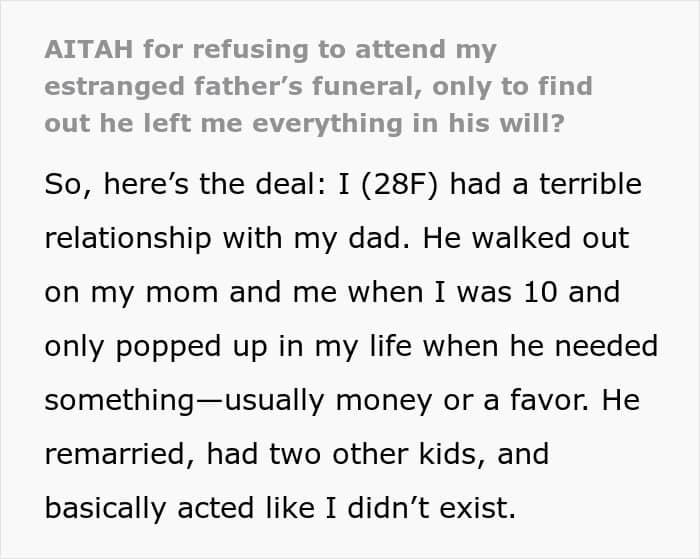
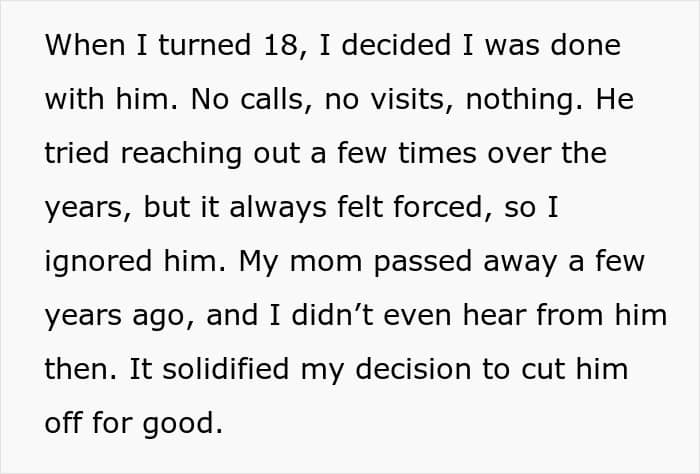
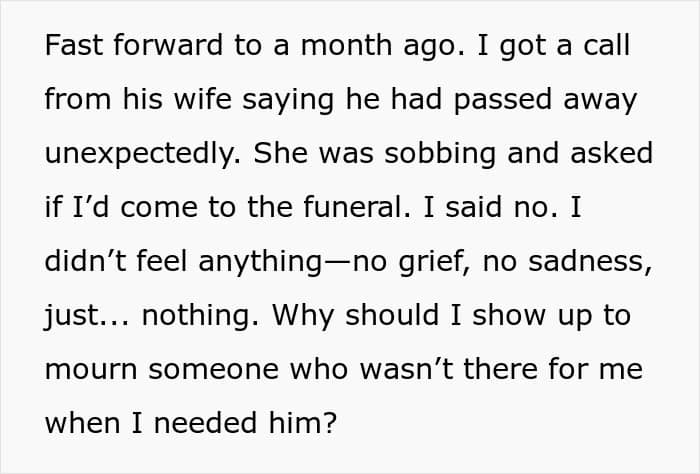

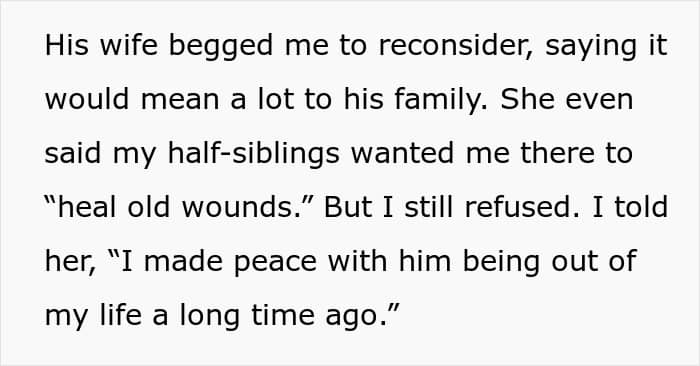
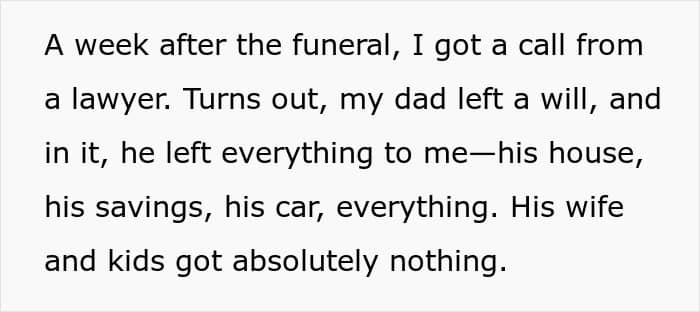
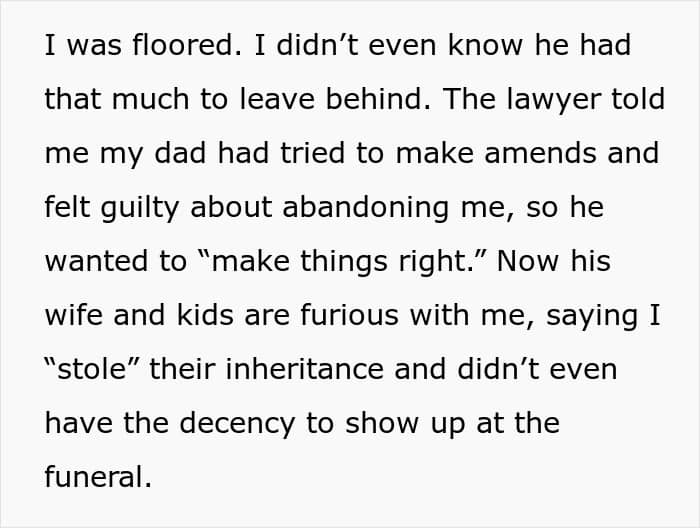

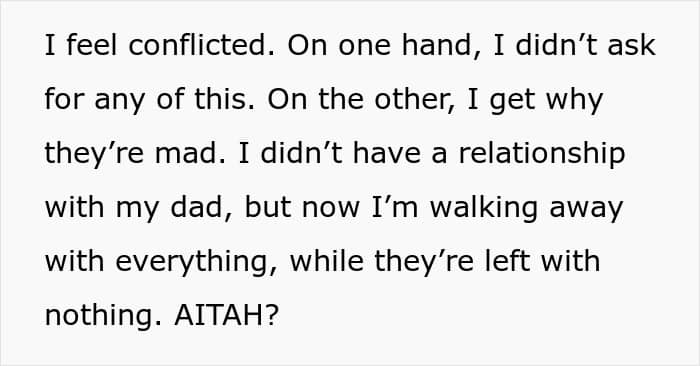
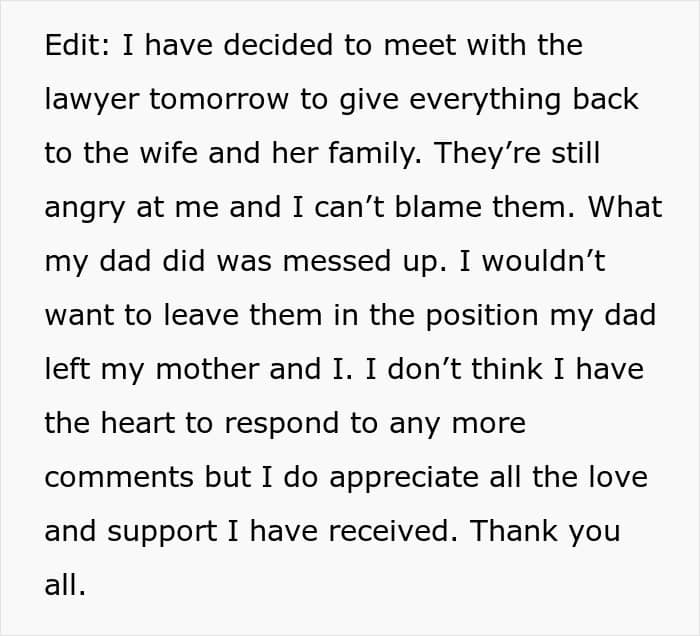

One quarter of adult children are estranged from a parent
In an ideal world, parents provide unconditional love and remain a constant presence in their children’s lives. But in the real world, relationships are complicated, and family bonds don’t always last. Sometimes, they become so strained that children choose to cut ties entirely.
A 2023 study published in the Journal of Marriage and Family found that 26% of adult children reported being estranged from their fathers, while a much smaller percentage—just 6%—had cut ties with their mothers.
“I think it relates to this new desire to have healthy relationships,” Rin Reczek, a sociology professor at Ohio State University and lead author of the study, told The Hill. “There might be some cultural shifts around people being allowed to choose who is in your family. And that can include not choosing to have the person who raised you be in your family.”
Reczek’s research shows that fathers are estranged from their children far more often than mothers. This is partly due to divorce, where children typically stay with their mothers, and partly because of the emotional distance that often forms between fathers and their children.
“A lot of the adult children I talk to, they don’t really know their fathers,” Reczek explained. “They don’t have a really close relationship with them. And that leads to estrangement.”
Some may argue that cutting ties with family is extreme, pointing to past generations where conflicts were endured rather than leading to complete separation.
However, context matters. For many, estrangement isn’t a rash decision—it’s a necessary step to protect their well-being after years of dealing with neglect, cruelty, or toxic dynamics. While the pain of that choice lingers, it often leads to a healthier and more fulfilling life.
Still, estrangement isn’t always permanent. Some adult children eventually choose to reconnect, and when they do, the results are often positive.
Karl Pillemer, a Cornell University sociologist and author of Fault Lines, studied parents and children who had reconciled after long periods of estrangement. He found that almost none regretted making the effort.
“Even after 10 or 20 years, virtually everyone who reconciled after a long estrangement was very glad they did, and almost all of them found it was a very powerful engine for growth,” he said.
“Even if the resulting relationship wasn’t perfect, they were still glad they’d done it.”
In the replies, the woman added that her dad never made an effort to support her and her mom after he left
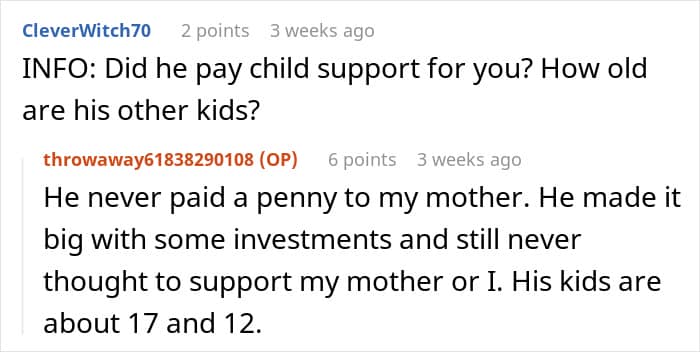
Some readers reassured her that she shouldn’t feel guilty about inheriting his estate

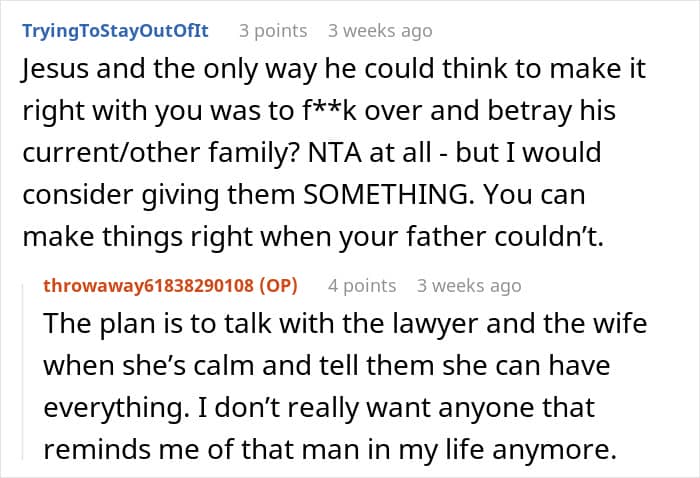

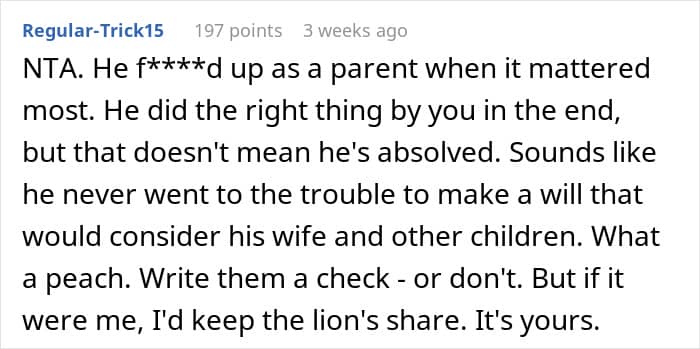



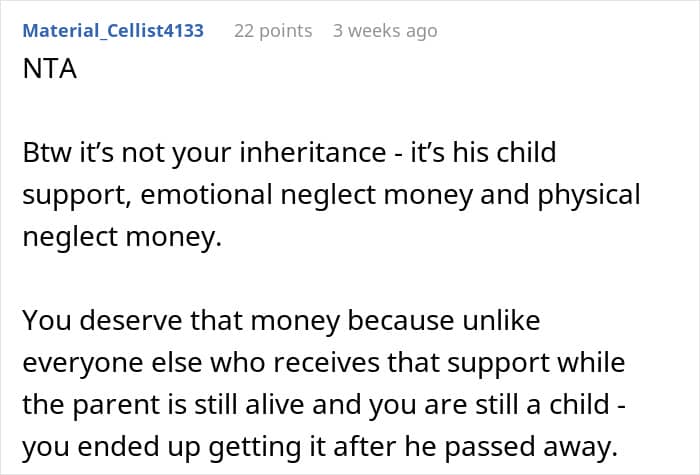




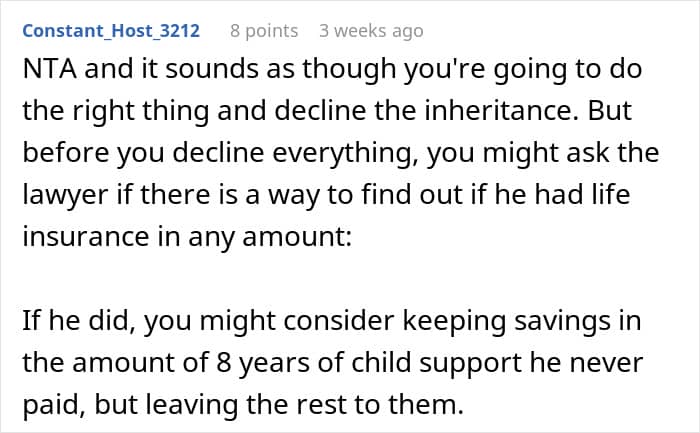

Others, however, were baffled by her choice to give it all away



